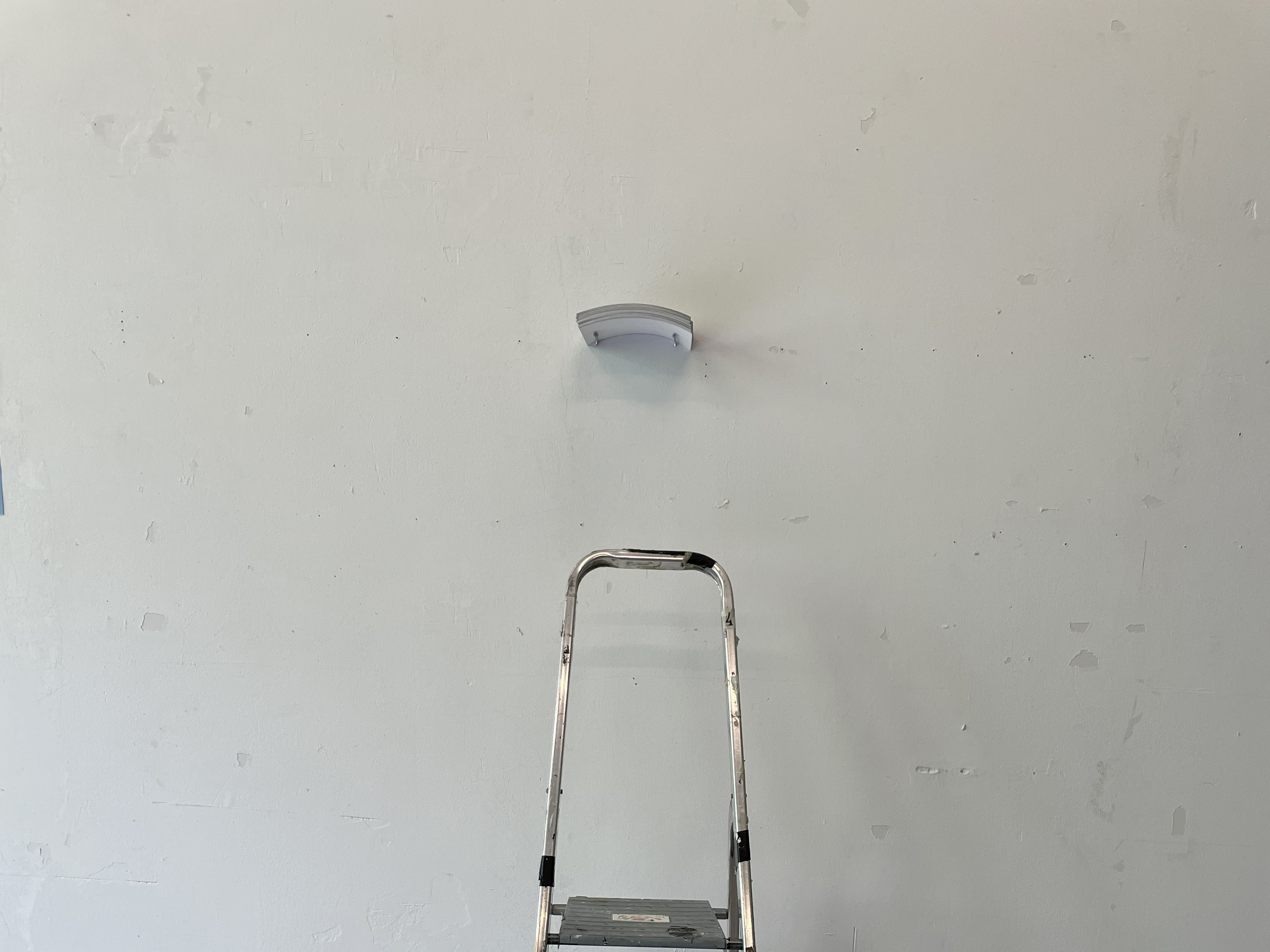
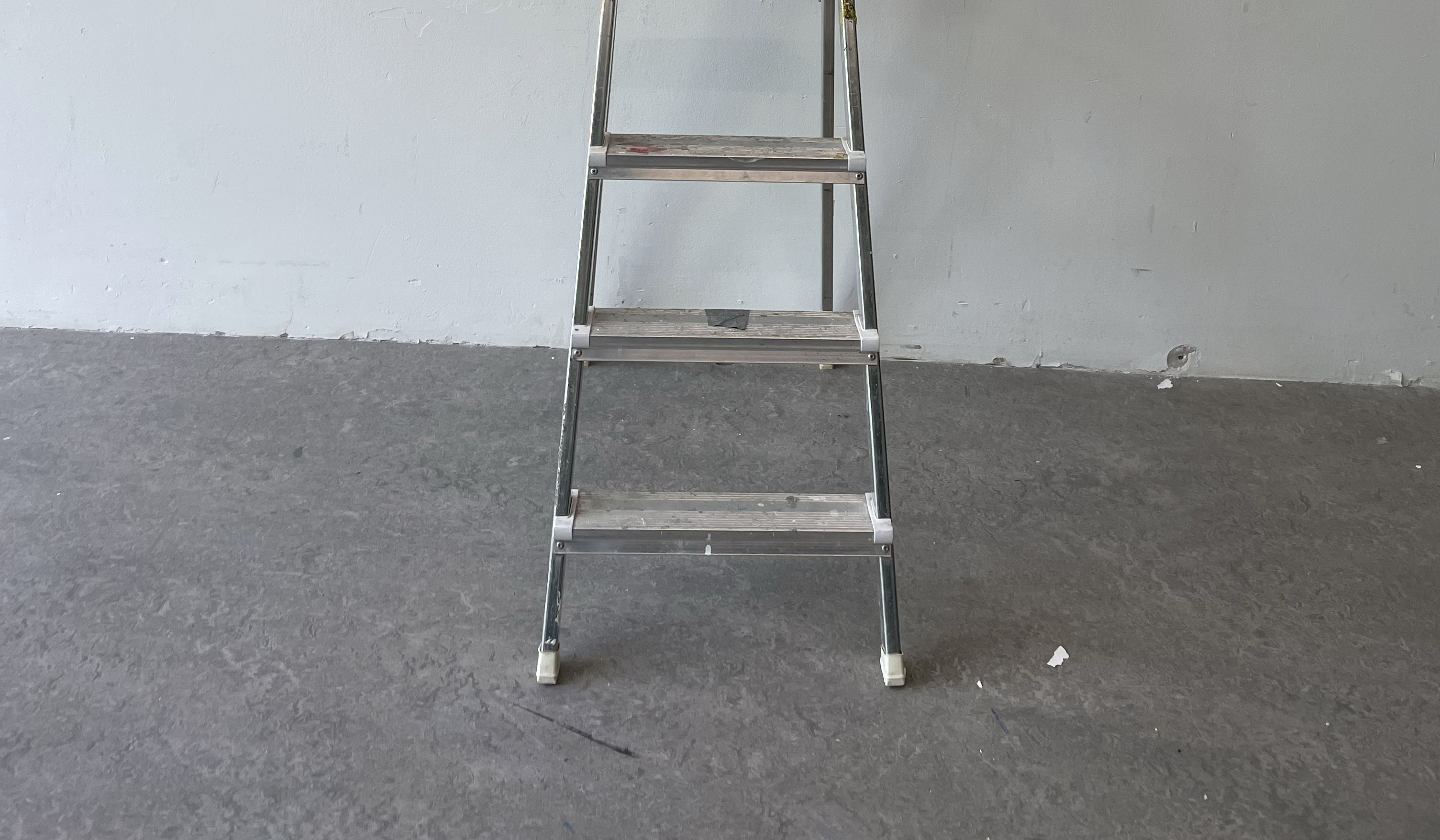


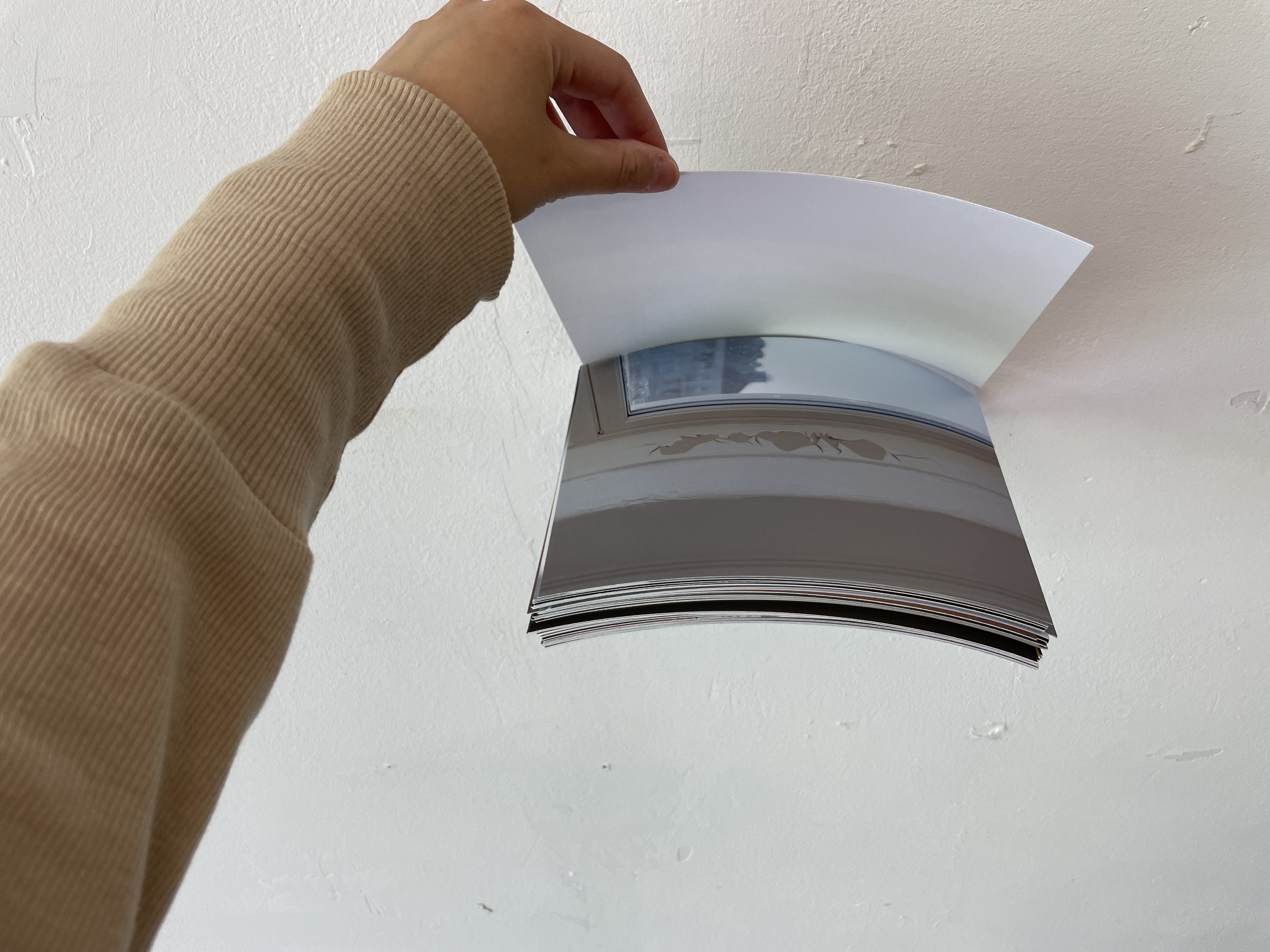

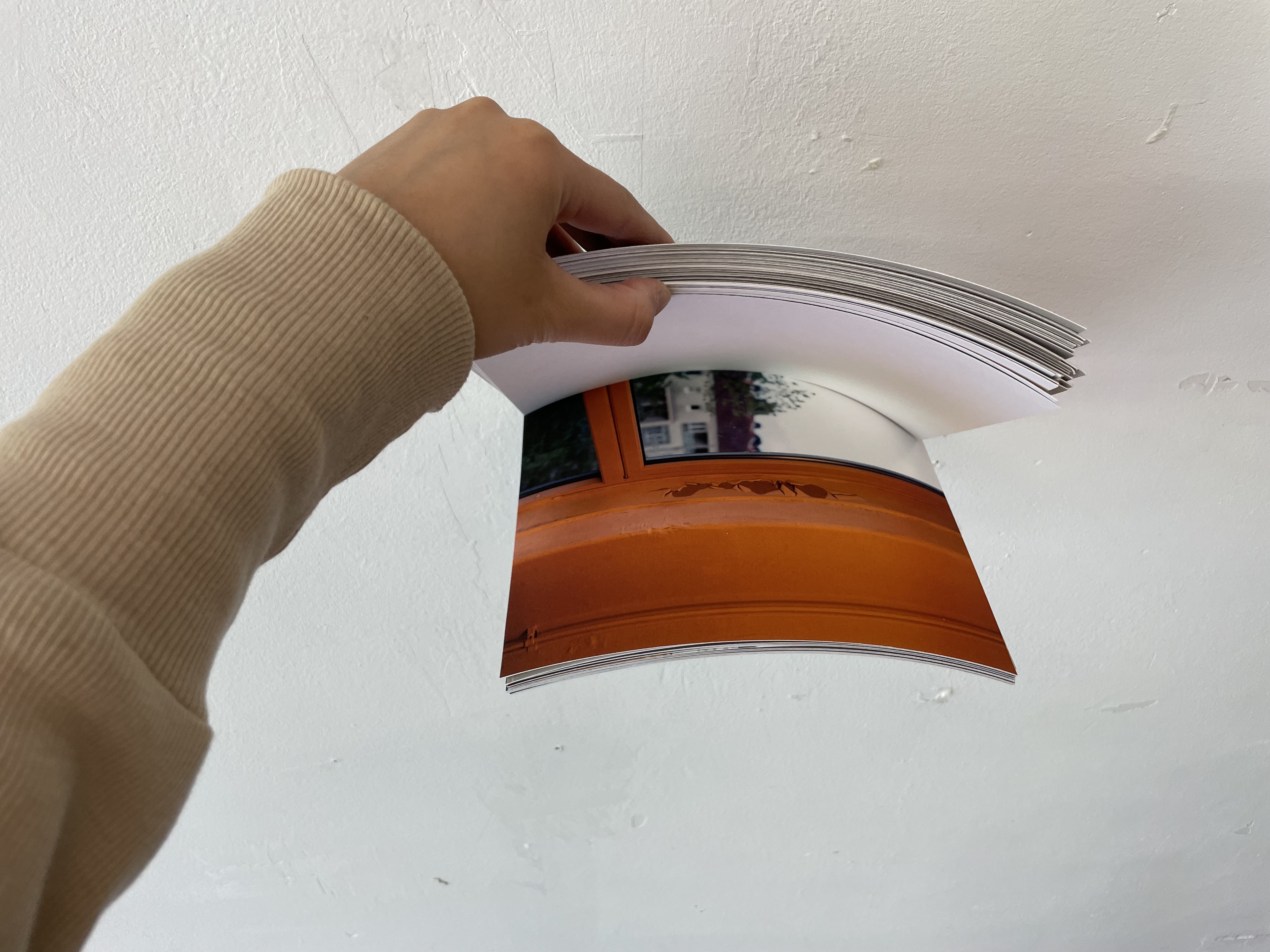
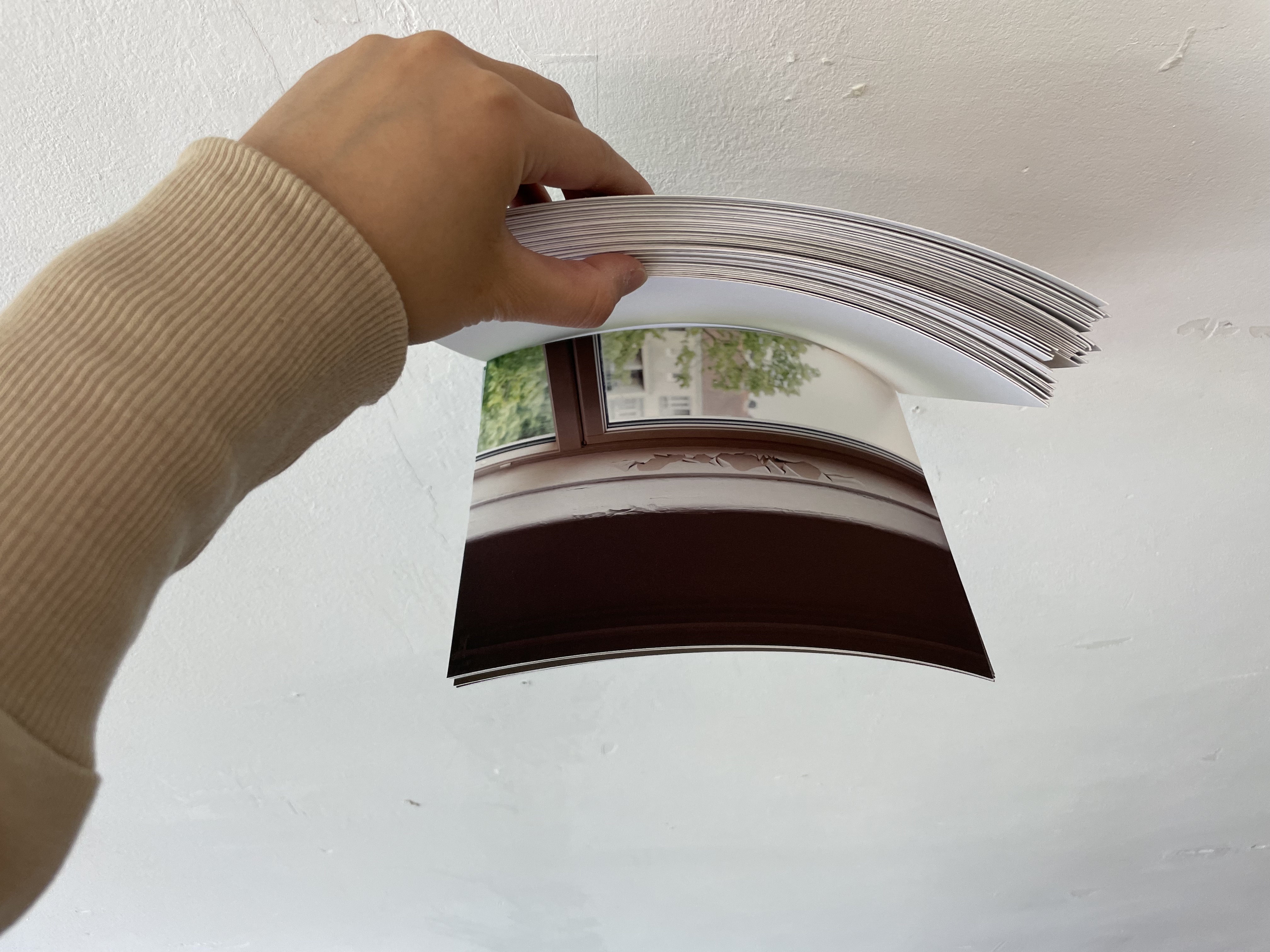
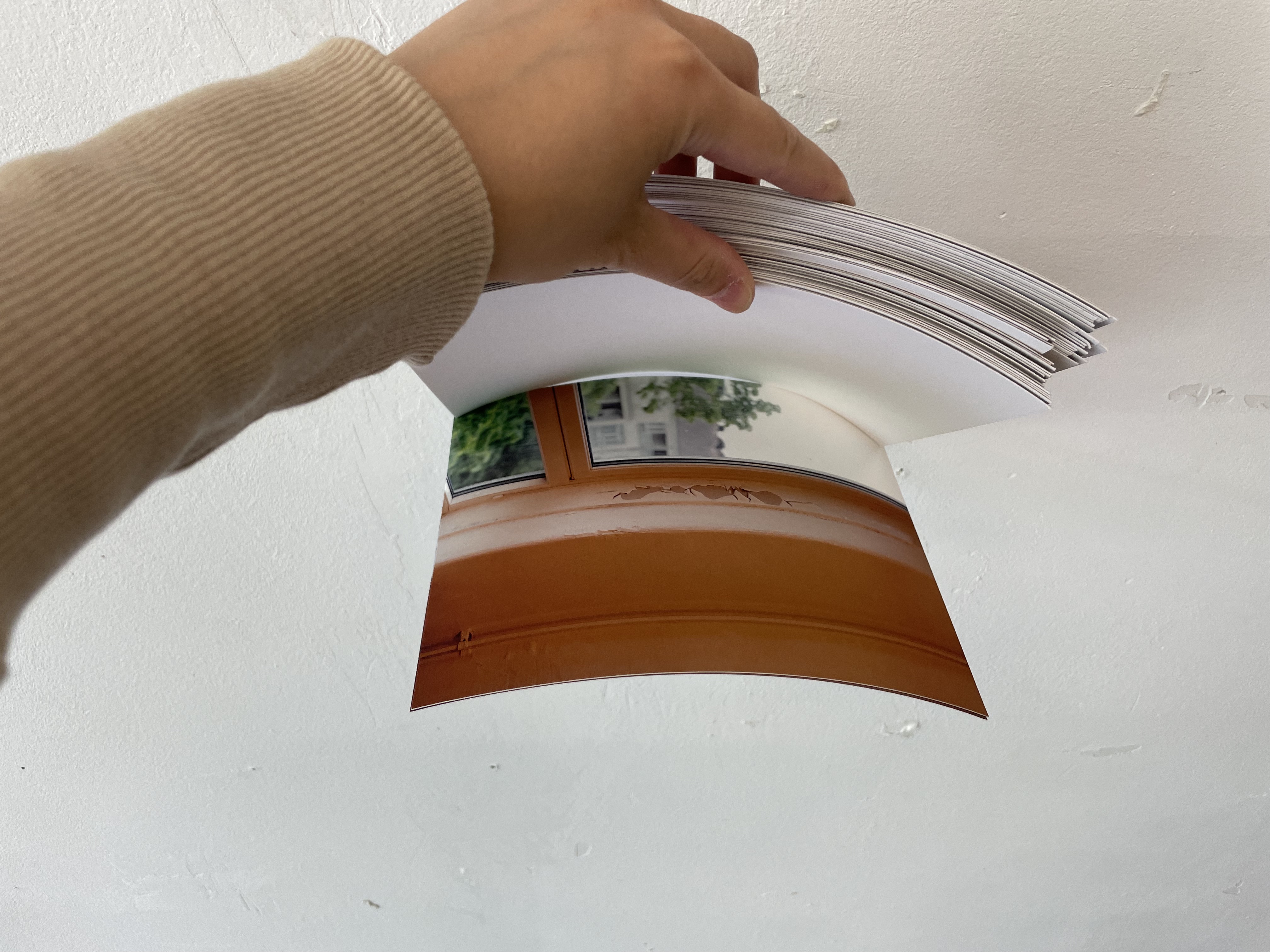
I Wandered Lonely as a Cloud, 2023-2024
62 photographs
Inkjet print on matt paper
Ladder, Nails on the wall
Over the past few years in South Korea, it has become increasingly common to come across articles about individuals found dead in small, isolated rooms—having lived alone without any contact from family or friends. Often, even the police struggle to locate their relatives.
The number of people choosing—or being forced—to live alone is growing. Some disconnect from society entirely, remaining unseen until they are discovered after death. This social phenomenon, first recognized in Japan, is called Kodokushi, or “lonely death.”
There are many possible reasons for this: aging, difficulty adapting to the rapid changes of the modern world, relentless societal pressures—or perhaps causes that remain unclear. For some, solitude is a choice. For others, it is an inevitability shaped by circumstance.
A South Korean journalist once wrote about a man found dead, alone and abandoned, and included a photo of a handwritten note possibly left by the man. It offered a brief trace of a life lived in silence. In it, one sentence stood out, written in Korean:
“이 날이나 저 날이나 매일 같은 날이구나.”
—“Whether it’s this or that day, they’re all the same.”
This project reflects on those who are told to see, to walk, and to socialize—but are denied access to society. It also considers those who, despite being blind, are somehow invited in.
Photographs were taken intermittently over the span of a year, as a way of checking in—quietly asking whether his words had indeed come true.
Over the past few years in South Korea, it has become increasingly common to come across articles about individuals found dead in small, isolated rooms—having lived alone without any contact from family or friends. Often, even the police struggle to locate their relatives.
The number of people choosing—or being forced—to live alone is growing. Some disconnect from society entirely, remaining unseen until they are discovered after death. This social phenomenon, first recognized in Japan, is called Kodokushi, or “lonely death.”
There are many possible reasons for this: aging, difficulty adapting to the rapid changes of the modern world, relentless societal pressures—or perhaps causes that remain unclear. For some, solitude is a choice. For others, it is an inevitability shaped by circumstance.
A South Korean journalist once wrote about a man found dead, alone and abandoned, and included a photo of a handwritten note possibly left by the man. It offered a brief trace of a life lived in silence. In it, one sentence stood out, written in Korean:
“이 날이나 저 날이나 매일 같은 날이구나.”
—“Whether it’s this or that day, they’re all the same.”
This project reflects on those who are told to see, to walk, and to socialize—but are denied access to society. It also considers those who, despite being blind, are somehow invited in.
Photographs were taken intermittently over the span of a year, as a way of checking in—quietly asking whether his words had indeed come true.
Photographs were taken intermittently over the span of a year, as a way of checking in—quietly asking whether his words had indeed come true.
